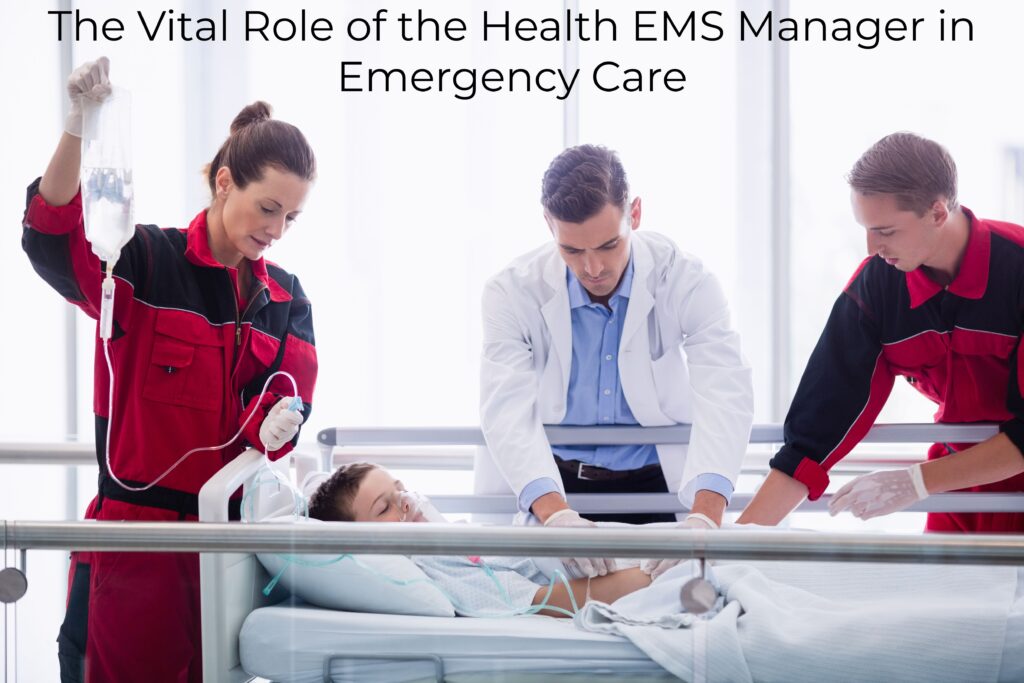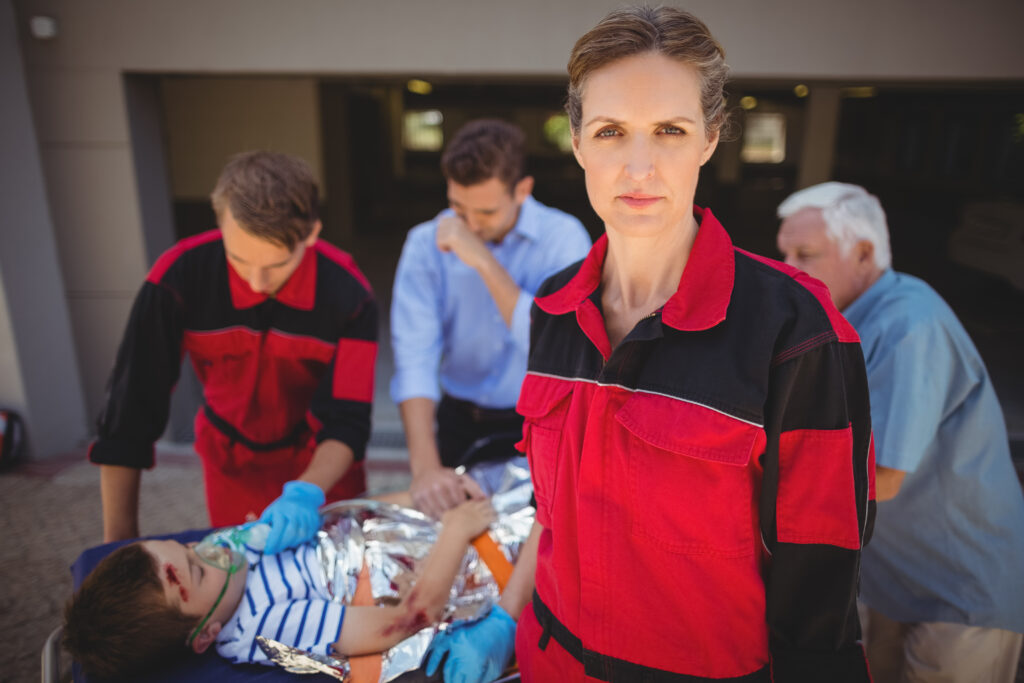Introduction
The vital role of the health EMS manager in emergency care for the public. Emergency medical services (EMS) are essential in today’s hectic environment because they can provide those in urgent need with instant care and transportation.
The health EMS managers, who make sure that emergency services are provided successfully and efficiently, are at the center of these activities.

The functions, duties, and effects of health EMS managers on emergency services, healthcare administration, and first responder training will all be covered in this blog post.
Understanding the Role of a Health EMS Manager
Table of Contents
A health emergency medical services manager is in charge of managing the day-to-day activities of emergency medical services and making sure that their teams are equipped to react to crises in a timely and professional manner.

A health emergency medical services manager is in charge of managing the day-to-day activities of emergency medical services and making sure that their teams are equipped to react to crises in a timely and professional manner.
Key Responsibilities:
Making sure the required tools and materials are available is known as resource management.
EMS staff scheduling, training, and supervision are all part of staff coordination.
- Policy Implementation: Upholding standards of care by enforcing rules and procedures.
Managing financial resources to maximize service delivery is known as budget oversight.
Understanding these crucial areas aids EMS workers in enhancing patient outcomes and service effectiveness.
Impact on Healthcare Management
By facilitating communication between emergency services and healthcare professionals, health EMS managers play a crucial role in healthcare management.
To expedite patient care from emergency response to hospital admission, they work in conjunction with clinics, hospitals, and other healthcare facilities.
Benefits for Health Care Administrators:

- Better Coordination: Increased interaction and cooperation with medical facilities.
- Efficiency in Care Delivery: Ensuring prompt patient handovers and efficient response times.
- Data-driven decisions: Making use of performance indicators to guide changes to procedures and policies.
- Data-driven decisions: Making use of performance indicators to guide changes to procedures and policies.
Enhancing First Responder Training
An essential component of EMS management is training. The responsibility of creating thorough training programs to give first responders the abilities and information required to tackle a range of medical situations falls on health EMS managers.
Training Focus Areas:
I am keeping up with the most recent advancements in emergency medicine through advanced medical techniques.
- Scenario-Based Drills: Using simulated exercises, responders are prepared for real-life scenarios.
- Soft Skills: Improving decision-making, empathy, and communication skills.
Effective treatment delivery, quicker reaction times, and increased survival rates in emergencies are all made possible by well-trained first responders.

Frequently Asked Questions (FAQs)
What qualifications are needed to become a health EMS manager?
Formal education and practical experience are usually necessary for a health emergency medical services manager. The majority of jobs require credentials like EMT-Basic or higher in addition to a minimum of a bachelor’s degree in emergency management, public health, or a similar discipline. Leadership positions and experience in emergency medical services are also crucial.
How do health EMS managers ensure the efficiency of EMS operations?
Health EMS managers need careful preparation and cooperation to guarantee effectiveness. They create and execute procedures, make the most use of available resources, and keep up ongoing staff training initiatives. Furthermore, they examine performance statistics to pinpoint areas that require enhancement and modify their approaches accordingly.
Why is first responder training so crucial in EMS management?
In EMS management, emergency response training is essential since it guarantees that staff members have the necessary tools to manage crises successfully. Their ability to make decisions, provide quick and efficient care in emergencies, and improve their medical skills are all improved by thorough training.
How do health EMS managers contribute to patient care continuity?
Facilitating smooth transitions from pre-hospital to in-hospital services is a critical function of health emergency medical services managers. Throughout the emergency response, they work closely with medical facilities to enhance communication and information exchange, which contributes to the delivery of reliable and efficient patient care.
Conclusion
An essential part of emergency care systems, the health EMS manager plays a big part in first responder readiness and healthcare administration.
They guarantee that emergency services run at their best by efficiently managing staff, resources, and training.
To improve emergency healthcare delivery, first responders, healthcare administrators, and EMS personnel must comprehend and support the work of health EMS managers. To help improve healthcare results for everyone, stay informed and involved in the continuous growth of these crucial positions.
Health EMS managers are leaders in delivering first-rate emergency care by emphasizing healthcare management, emergency services, and first responder training.

Pingback: Empowering Health in Hall County, GA -